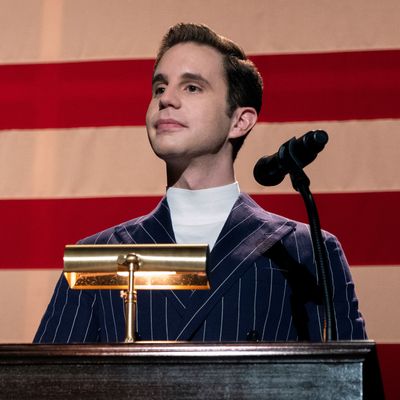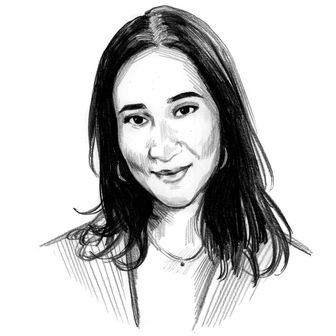
Critics agree that The Politician is bad. The first product of Ryan Murphy’s record-setting $300 million Netflix deal has been described as “hot garbage,” “irritating,” and “a mess.”
I checked it out anyway, mostly because I was curious to see what Murphy’s version of a show about American politics looks like — something that has almost exclusively lived onscreen as a superhero origin story about an underqualified, or a decent but flawed, or a disgraced white man’s rise to public office.
Murphy is, after all, one of the few of his ilk in Hollywood who offers more than lip service when it comes to hiring women, people of color, and queer people into the industry. An early adoptee of the newly trendy inclusion-rider concept, he launched the Half Initiative in 2016, an actually successful hiring system that helped achieve gender and racial parity within the ranks of his own vast spate of productions. (He calls Janet Mock — writer and creator of the Murphy production Pose — the program’s “first graduate.”)
How wonderful, I thought, that Murphy of all people has a ton of Netflix cash to make a show about American politics at a time when women, minorities, and queer people’s political participation is at an all-time high? I trust this guy, I thought.
But, as it turns out, Murphy doesn’t really have anything new to say about politicians in The Politician. The show opens with Payton Hobart, the titular character played by Dear Evan Hansen’s Ben Platt, declaring: “I’m going to be president of the United States,” on the basis of an inflated sense of self he’s nursed since age 7 and an obsession with the historical prestige of the institution. The usual stuff.
Mostly, the show is like Glee (it has the same writers) and follows Payton’s political rise and fall in his bid for class president at a fancy Santa Barbara high school. The high-school campaign cycle offers a cynical approach to politics, with the would-be presidents poaching “differently abled,” black, terminally ill, gender-nonconforming — basically anyone but straight white male — running mates to drum up the diversity vote. As is characteristic of Murphy, The Politician features many nonwhite, queer, and female characters, but they’re all ancillary in yet another story about a white dude’s misguided grab for power and glory.
I’m just wondering, though: Why? Why, when Murphy explained in a recent Hollywood Reporter interview that Platt’s character is a composite of Obama, Nixon, and Alexandria Ocasio-Cortez, did he ultimately create a show about a (“fluid“) Nixon? Why, as Vox’s Emily VanDerWerff writes, is Murphy’s politician basically “Alexandria Ocasio-Cortez reimagined as an anodyne white man”? As Daniel Feinberg asks, in a world where AOC is “the ultimate poster girl for youthful political hunger … who would have guessed that Murphy of all people would reframe that narrative around a white man?”
Instead of centering an AOC, a Stacey Abrams, an Obama, or a Kamala Harris (Murphy’s purported 2020 dream nominee), we get a Payton Hobart, which isn’t implicitly a bad choice, but one that has no apparent payoff or discernible purpose in this extended political metaphor.
The Politician is supposed to, I think, be political satire, but it’s mostly a muddled attempt to use a high-school election to interrogate income inequality, capitalism, corruption, social media, and virtue signaling in American politics. It’s supposed to, I think, make some sort of comment on marginalization and to reflect our current cultural moment. And maybe I’m just missing something, but it truly fails to do much reflecting at all.





